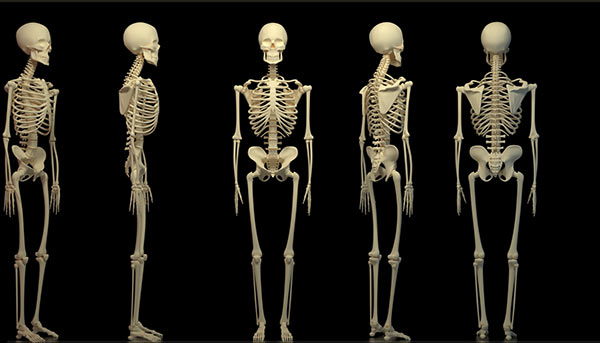How much calcium do our bodies need anyway? Here are some symptoms of calcium deficiency to watch out.
People often ignore the warning signs of calcium deficiency, until the problem becomes severe. It is important to be aware of these signs as addressing the problem early can save you from future complications. With a simple blood test, your doctor can check your calcium level.
To reduce your risk of calcium deficiency, you should consume the recommended amount of calcium per day through the food you eat. If necessary, you can take calcium supplements, after consulting your doctor.
Here are some warning signs that you may have a calcium deficiency.
1. Muscle Aches and Cramps
One of the most common symptoms of calcium deficiency is muscle aches and cramps. Lack of sufficient calcium causes nerve cells to become extra sensitive, leading to sudden muscle cramping and pain.
Uncontrollable muscle twitches as well as numbness and tingling sensations in the hands and legs can occur for the same reason.
Moreover, a low calcium level may impair the nervous system, which in turn affects the functionality of nerves.
If you are experiencing muscle cramps and aches on a regular basis, despite proper hydration and an adequate hemoglobin level, it is time get your calcium level checked.
2. Weak Bones
Insufficient calcium in the body can take a toll on the health of your bones. The mineral is vital for building bones and keeping them strong.
With low calcium, bones are likely to become weak, which increases susceptibility to osteoporosis and fractures. In the long run, weak bones can also impact a person’s stature and overall strength.
This is why parents should make sure that their children are eating calcium-rich foods, especially during their growing years.
When you don’t take in enough calcium, the body starts using the calcium from your bones to ensure normal cell function.
Aging people, especially women after menopause, should consider taking calcium supplements to prevent bone loss and fractures that occur with age.
3. Weak Teeth
Calcium deficiency can even show its sign in the teeth. Calcium is an important constituent of teeth; hence its deficiency can cause delayed and defective tooth formation in children. Adults also may experience more frequent instances of tooth decay and other oral problems.
A 2001 study published in the American Journal of Medicine notes that both calcium and vitamin D supplements help reduce tooth loss in the elderly.
4. Frequent Illness
Calcium is also needed for maintaining a healthy immune system, which helps the body battle viruses, bacteria, yeasts and fungi. This is why people who are deficient in calcium are more likely to suffer from common colds and infections.
Furthermore, calcium is one of the most important alkaline minerals that increase the oxygen level in your blood. Bacteria and fungi cannot survive in an alkaline atmosphere.
It also supports the healing process of wounds and injuries. In a 2013 study published in Current Biology, scientists for the first time revealed how a flash of calcium is the very first step in repairing damaged tissue to speed up the healing process following injury or surgery.
Do you need calcium supplements?
The following table is the Recommended Dietary Intake (RDA) of calcium developed by the Food and Nutrition Board. These are the amounts of calcium required for bone health and to maintain adequate rates of calcium retention in healthy people.
Tips to overcome calcium deficiency:
- Be sure your diet includes calcium-rich foods, such as skim or non-fat milk, dairy products, dark leafy green vegetables, fortified cereals, citrus fruits, blackstrap molasses and soy products.
- You can opt to take a supplement, but consult your doctor for the correct dosage.
- As vitamin D helps regulate calcium in the blood, make sure to include foods rich in vitamin D in your diet. Also, enjoy early morning sunlight for 15 minutes daily to help your body produce vitamin D.
- As magnesium aids in calcium retention, eat magnesium-rich foods on a daily basis. Spinach, summer squash, turnips, sea vegetables, green beans, whole grains, pumpkin seeds and sesame seeds are good sources of magnesium.
- Soda, caffeine and excess sodium intake can interfere with calcium absorption, so consume them in moderation or completely avoid them.
Next Article: Foods That Have Way More Calcium Than Milk
Resources:








Recent Comments